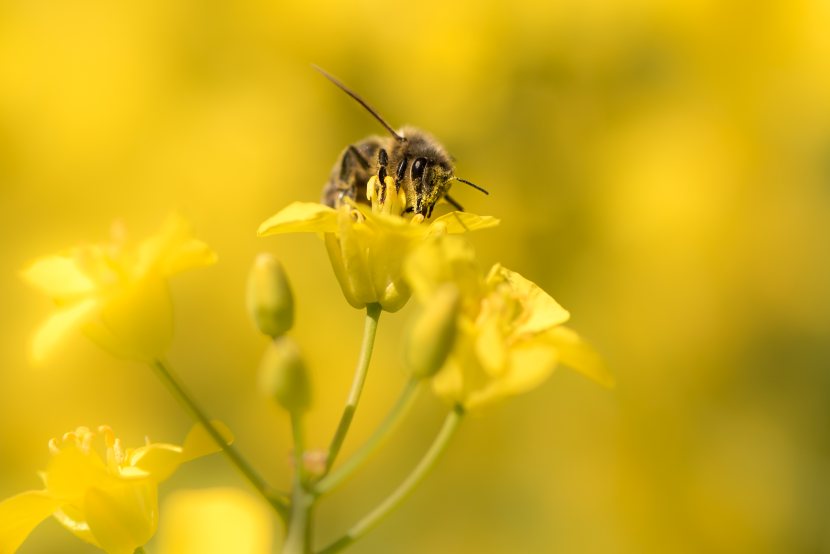
The European Commission has proposed a ban on widely used insecticides from all fields across Europe under draft regulations, and cite them as having “high acute risks to bees”.
The decision by Brussels, in documents seen by The Guardian, could shock the farming industry which is fearful that a ban on the substances could deplete crop yields across Europe.
If proposals are approved by a majority of EU member states, a complete ban could be in place this year.
The European Commission has cited a risk to bees as one of the reasons for the ban proposal.
The latest proposal is based on opinions of the European Food Safety Authority (EFSA) published in 2016.
These opinions concur with independent scientific assessments of the dangers associated with neonicotinoid pesticides.
There is some scientific consensus that bees are exposed to neonicotinoid pesticides in fields and suffer harm from the doses they receive.
For example, Stirling University researchers have said bees exposed to neonicotinoids fail to learn how to buzz properly and in turn they fail to release the pollen from some flowers, such as those of crops like tomatoes and potatoes.
Greenpeace EU food policy director Franziska Achterberg said it was good news for the environment but even if the pesticides are banned 'similar chemicals will still be permitted.'
"The EU must apply the same strict standards to all pesticides and support the transition to ecological methods of pest control."
'Over-zealous'
However, MEPs in Brussels have been warned against 'over-zealous' and 'ill-considered' banning of important pesticides in the European Parliament.
UK's Centre for Applied Crop Science said the EU was not performing well when approving or banning plant protection products.
Chairman John Chinn told a hearing at the European Parliament: "A failure to distinguish between hazard and risk is an essential part of the confusion about perceived threats from or to our environment; in general hazard identification is easy and often speculative; risk evaluation is generally complex and demanding.
"Rational responses are not invariable. There is an extraordinary disregard for well documented risks while others, of marginal significance, distort public and private spending decisions.
"These factors, coupled with a perverse preference for natural toxicity over synthetic safety, lead to an indifferent performance in risk management in the community."
'Disappointed'
The National Farmers' Union said farmers across the country have already suffered heavy losses through oilseed rape crop damage following restrictions to the availability of neonicotinoids.
A recent survey of 400 arable farmers who all grow winter oilseed rape (OSR) reports that 8.3 per cent of the crop this year has failed.
But Paul de Zylva, of Friends of the Earth, said: "The science is catching up with the pesticide industry – the EU and UK government must call time on neonics. Going neonic-free puts farmers more in control of their land instead of having to defer to advice from pesticide companies."
However, Sarah Mukherjee, chief executive of the Crop Protection Association, which represents pesticide makers, said: "We are disappointed with this proposal, which seems more of a political judgement than sound science.”
"The proposal is based on an assessment using the unapproved Bee Guidance document and perfectly illustrates the consequences of using this guidance. Most crop protection products, including those used in organic agriculture, would not pass the criteria."
